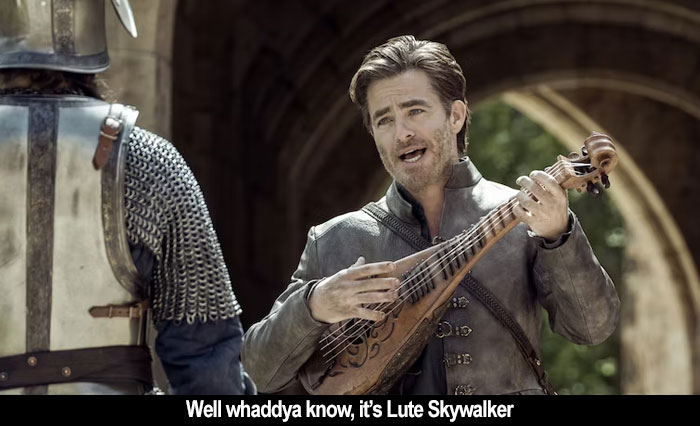
DUNGEONS & DRAGONS: HONOR AMONG THIEVES
**½/****
starring Chris Pine, Michelle Rodriguez, Regé-Jean Page, Hugh Grant
screenplay by Jonathan Goldstein & John Francis Daley and Michael Gilio
directed by Jonathan Goldstein & John Francis Daley
CHAMPIONS
**½/****
starring Woody Harrelson, Kaitlin Olson, Ernie Hudson, Cheech Marin
screenplay by Mark Rizzo, based on the Spanish film Campeones written by David Marqués & Javier Fesser
directed by Bobby Farrelly
by Walter Chaw I like squad movies, always have. Heists, war, impossible missions, underdog sports teams, collections of samurai or cowboys, miscreants or heroes, misfits generally and specialists sometimes. When it came time to make a sequel to Alien, Walter Hill understood James Cameron’s pitch as exactly this formula the great Howard Hawks had perfected: the squad film. I think it works as well as it does because the requirement to craft three-dimensional heroes is lessened in favour of reliable, audience-pleasing character types. Each player has a skill–a personal Chekhov’s Gun, if you will. It’ll only be a matter of time before they use it. Jonathan Goldstein and John Francis Daley’s Dungeons and Dragons: Honor Among Thieves (hereafter D&D) is one recent example of the squad flick; Bobby Farrelly’s Champions is another. Both are about bands of social outcasts who learn to appreciate how their respective skills complement one another along the way to greater lessons about the world and its navigation. One sees a team of Special Olympics athletes led by an unctuous, quippy white guy; the other sees a team of nefarious and/or magical ne’er-do-wells led by an unctuous, quippy white guy. Only one of them, though, dares to deviate from the winning-means-everything formula, measuring its victory in the celebration of a friend’s sense of self-worth and confidence. Which is not to say that one film is significantly better than the other, or even that they have different aims, ultimately. Rather, I only mean to suggest that the degree to which one is lauded and the other derided probably has a lot to do with internalized bias and very little to do with any meaningful distinctions in what these movies substantively are.

